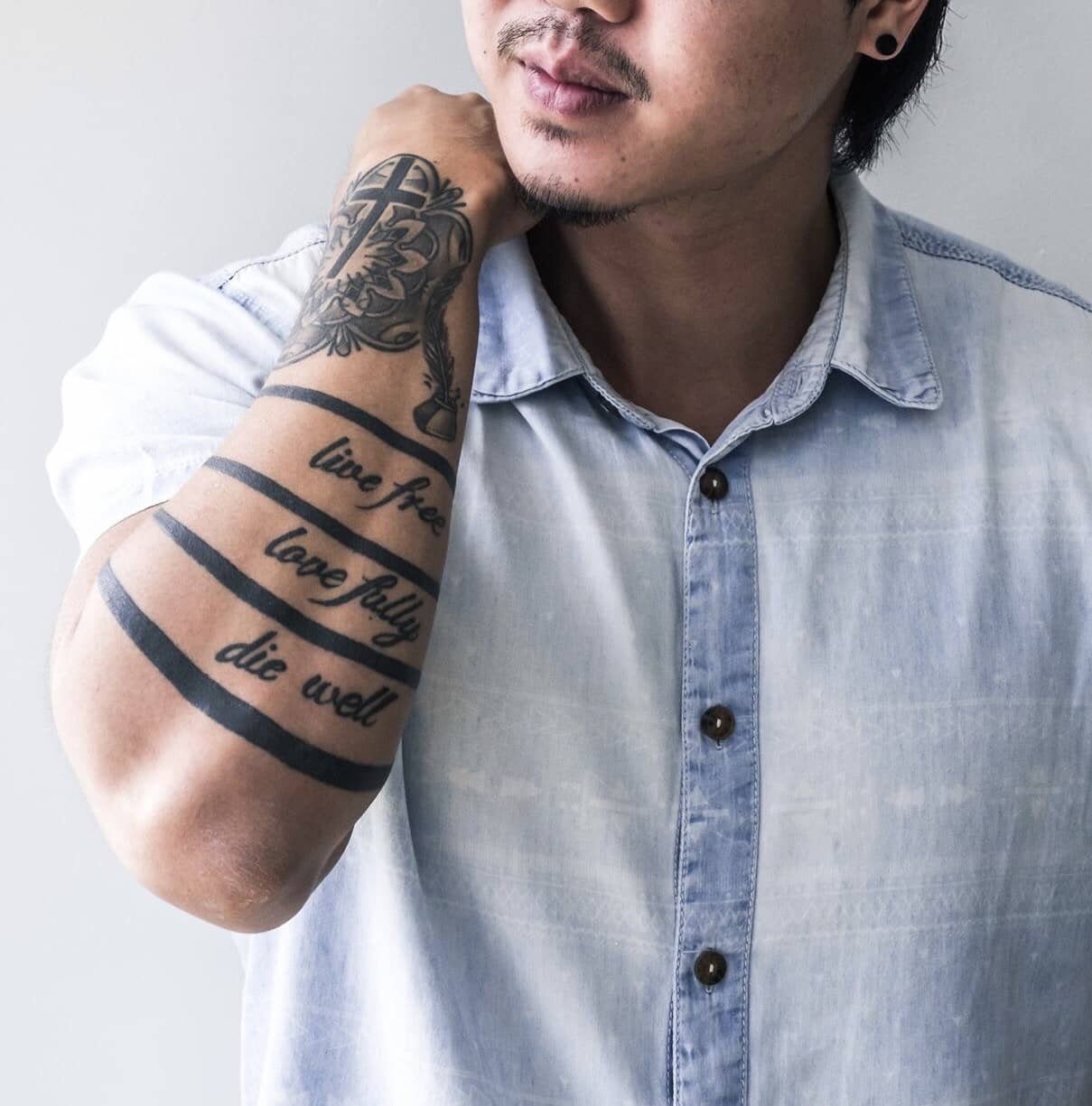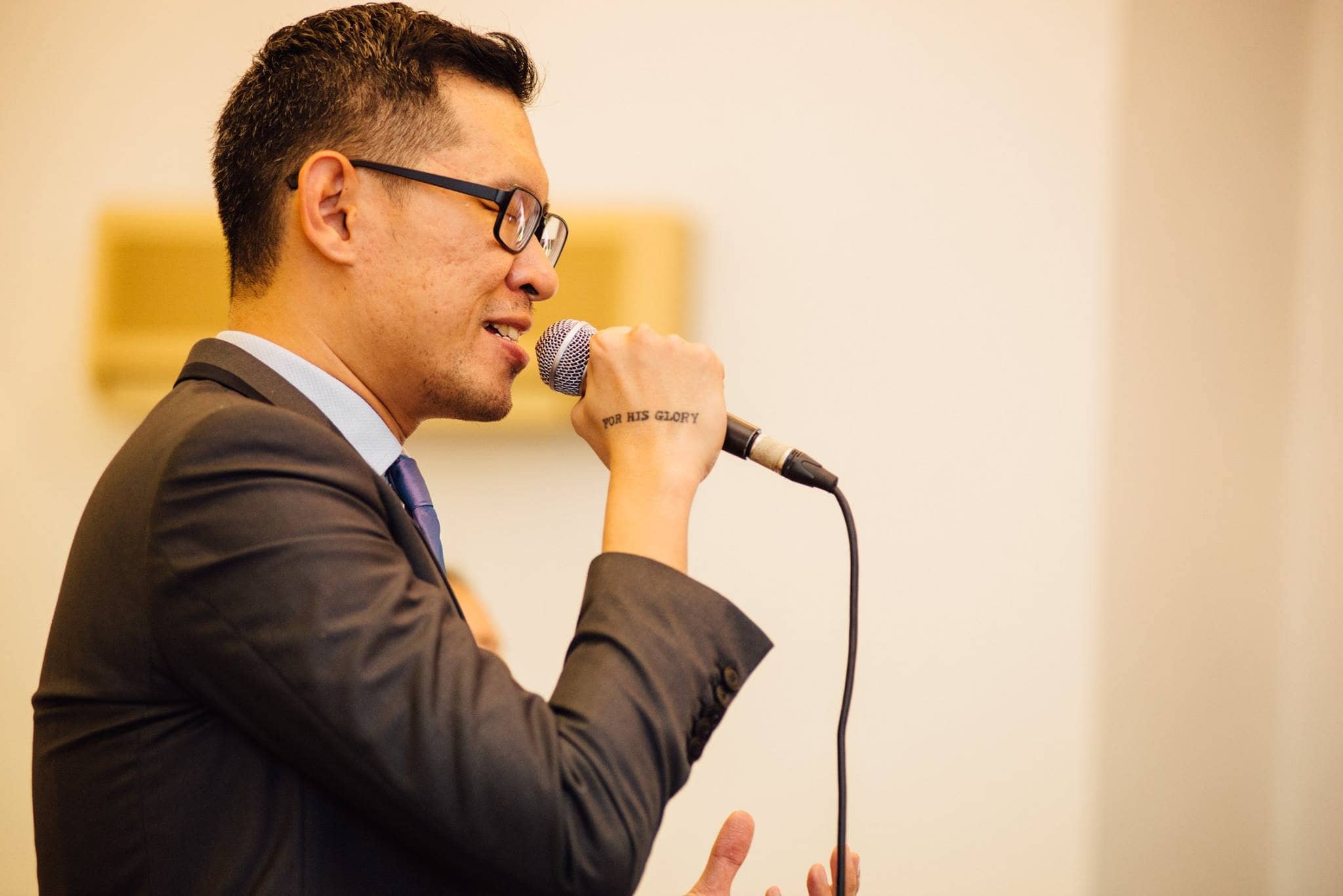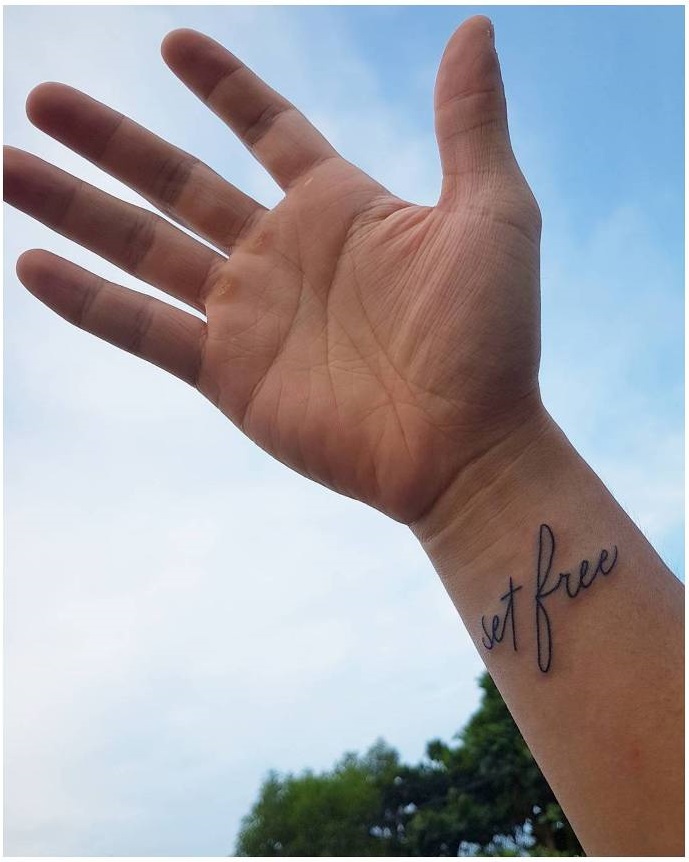TALKING ABOUT TATTOOS
By James Lee
If you grew up in an Asian home, and more specifically a ‘Christian Asian home’, chances are you would have heard the following about tattoos: “It’s a sin”, “Only gangsters have tattoos”, “Later you cannot find job or girlfriend, how?”
Today however, tattoos are seen more as body art and self-expression, predominantly among the younger generation and even among Christian youth.
Why are tattoos controversial, especially among the older Christians? Most evangelical Christians quote Leviticus 19:28, which says, “You shall not make any cuttings in your flesh for the dead, nor tattoo any marks on you: I am the Lord.”
Here, God specifically told the Israelites en route to the Promised Land to stay away from foreign religious practices, such as eating bloody meat, certain haircuts and markings of the body for dead relatives, as these practices would lead them astray. However, in the same passage, God also told them not to shave the sides of their heads. Yet, we don’t grow up being told that shaving the sides of our heads is a sin.
So then, how should we interpret and understand this tattoo text today?
Pastor Mike Ngui of Damansara Utama Methodist Church (DUMC) said, “In such situations, we can do either one of these three: Ignore all of them because, it’s the OLD law and we live by the New Testament now; take ALL of them at face value, because it IS the written Word of God; or carefully consider them in its time and context.”
His advice is option 3. “Firstly, I understand this sole verse explicitly about tattoos to be forbidding a practice closely associated with ancient idolatrous worship of that region and of that time.
“These ‘neighbours’ cut themselves as part of their worship to Baal. Therefore, I think it is inappropriate to use this verse to forbid tattoos in the modern-day context.
“Today, tattoos in our modern Malaysian society may not have any association to abominable religions, but tattoos are still viewed unfavourably. As a Christian, it is not merely about whether something is intrinsically wrong or evil, but also about how it is perceived. Apostle Paul exhorts us to live a better way – the way of love, which is to refrain from something that may not be wrong in itself for the sake of not stumbling others.”
If tattoos are not intrinsically ‘sinful’, why then does it still ‘stumble’ our brothers and sisters? Ps Mike believed it’s due to the negative association with tattoos.


CHRISTIANS AND THEIR TATTOOS
Daniel Lim, 33, grew up being taught that tattoos were associated with gangsterism and that those who had them were bad hats. This is historically and culturally true, as in 17th century Japan when tattoos were used to mark prison inmates as criminals.
The worship leader from Petaling Jaya Evangelical Free Church said since he understood tattoos to be cultural and show association to a community or a leader, “I want to show my allegiance to God, my leader and my King”.
Daniel’s tattoos are deeply significant to him. After his rededication to God in 2015, he decided to tattoo the words, “By His Grace” and “For His Glory”, on the back of his left and right hands respectively.
He explained: “I tattooed ‘By His Grace’ on my left hand because it’s the weaker hand, so it reminds me to live my life in weakness ‘by His grace’. My right hand is stronger and so, I offer my strength ‘For His glory’!” When asked if his tattoos had hindered his ministry, Daniel said most church members accept them.
Today, many Christians get themselves ‘inked’ with symbols, words or Scripture verses that demonstrate their faith in the Lord. Stephanie Yap, 22, is the former Christian Fellowship President at IACT College and she sports a tattoo on her left wrist.
“My tattoo says ‘RUN’. I got it to remind myself to run from sin but later on, I saw it as running TOWARDS God rather than just away from sin,” she said. “This has given me a new meaning on how I view sin and how to tackle it.”
For Caleb Yeoh, his tattoo, “the God who clothes the lilies is looking out for me”, is inspired by Matthew 6:28. With his right arm ‘inked’, the drummer from FGA Centre Penang will cover his arm whenever he serves in church out of respect to the church.
BEFORE YOU TATTOO
What should a Christian consider before getting a tattoo? Josh Sebastian believed that we should treat tattoos like anything we do to our bodies, which is to be done in wisdom and with God in mind.
As a youth pastor of nearly 300 youth in KingdomCity, Josh advises his youth that “firstly, Scripture, whether Old Testament or New Testament, is always relevant but it should not be taken out of context”.

Josh, who recently got his fourth tattoo, shared that his tattoo journey was a reflection of his walk with God. “There’s a song by Leeland that goes, ‘I have seen Your face, and now I can’t walk away’. It’s the same for me with tattoos: I’ve come this far in my revelation with God, and I want something permanent that would not go away.
“Don’t just get a tattoo because it’s cool. Think long and hard about what it means to God, to yourself and to others,” he advised.
Josh’s church accepts his tattoos and does not stop him from serving because of them. “It’s not about what you look like externally, but how you are internally. We can’t say ‘This person LOOKS like a sinner’ when there are others who LOOK fine but could be secretly abusing their spouse or living in sin.”
Pastor Andy Yeoh, the youth pastor of ACTS Church, thinks tattoos may still be a taboo because of perception, upbringing, education and the fear of what we don’t understand. However, he also believed that today, there is more acceptance and compromise among the older and younger generation.
When asked if he would consider getting tattoos, he said, “No, but that is mainly because I don’t think I will look good in them.”
I have tattoos, some which I thought long and hard over and some which I should have considered a lot more. I would say to anybody who wants to get a tattoo to be prayerful about it. While having tattoos may not be a ‘sin’, we should not live selfishly.
Even though one of my tattoos says “set free” as a reminder that I am set free from the bondage of sin, I realise that I am not “set free” from the consequences of my actions. I must be ready to answer when people ask me about my tattoos and to be careful not to stumble others because of them.
Asian Beacon: Oct – Dec 2017 (Vol 49 #3, p30-31)
